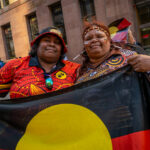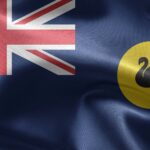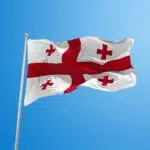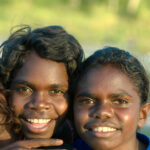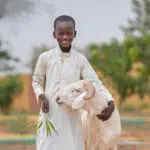Every May 26 in Australia, National Sorry Day reminds the colonist-descended people of the nation to remember the mistreatment of Aboriginal and Torres Strait Islander people. Why? During the 20th century, Indigenous children were forcibly removed from their families to be “assimilated” into white Australian culture. They are known as the “Stolen Generations.” It took several Australian government administrations coming and going before an apology was officially offered to the Indigenous Australians, but it finally was made official, and actions are still being undertaken to this day to repair the damage caused by tearing native families apart.
History of National Sorry Day
The first National Sorry Day was observed in 1998, a year after the first “Bringing Them Home” report — the result of a government inquiry into the child-stealing of the 20th century — was brought before the Australian Parliament. Among that report’s recommendations was the idea of an unreserved apology and the proposition that a portion of the national budget should be put towards reparations.
The formal apology came in 2008 when Kevin Rudd was Prime Minister. The best former Prime Minister John Howard had done, in 1999, was to put forth a “Motion of Reconciliation” that expressed regret and sympathy, but no admission of culpability. In the meantime, there was a motion to rename the day “The National Day of Healing,” which passed in 2005.
It was really Prime Minister Rudd’s unreserved apology that really struck a chord in the hearts of Australians. It was his Parliament that adopted the goals of the “Closing the Gap” movement, which focused on the health and equality of indigenous peoples of all generations. Closing the Gap was run by Oxfam Australia between 2009 and 2019, and then was handed over to Australians for Native Title and Reconciliation (ANTaR), who still produce an annual report.
National Sorry Day is a day to acknowledge the strength of Stolen Generations Survivors and reflect on how Australians can all play a part in the healing process for the people and nation. While this date carries great significance for the Stolen Generations and other Aboriginal and Torres Strait Islander peoples, it is also commemorated by Australians right around the country.
National Sorry Day timeline
The inaugural “Bringing Them Home” report is tabled in the Australian Parliament. (Note: “Tabled” in British-style parliamentary procedure means “brought to attention,” not to be confused with the American meaning of “shelved until further notice.”)
The first National Sorry Day is observed to commemorate the mistreatment of Australia’s native tribes and people.
A multi-thousand participant walk across the Sydney Harbor Bridge is organized and executed to bring attention to the reconciliation movement.
Former Australian Prime Minister Kevin Rudd offers a formal apology to the Stolen Generations.
National Sorry Day FAQs
How do we celebrate National Sorry Day?
Events such as Sorry Day flag-raising events, morning teas or lunches, media statements from Australian politicians, and speeches from community leaders, including Indigenous Australian elders, are often conducted during this day.
What was Kevin Rudd’s apology speech about?
At 9:30 am on 13 February 2008, former Australian Prime Minister Kevin Rudd presented the apology to Indigenous Australians as a motion to be voted on by the house, which included the lines of, “We apologize for the laws and policies of successive Parliaments and governments that have inflicted profound grief, suffering and loss on these our fellow Australians
Why did Australia say sorry?
A national apology was issued, especially for the removal of Aboriginal and Torres Strait Islander children from their families, their communities, and their country. This apology extended to the pain, suffering, and hurt of these Stolen Generations, their descendants, and for their families left behind.
How to Observe National Sorry Day
Learn the stories of the Stolen Generations
Just a little research will tell horrific stories of children torn from their rightful families and forced into an unfamiliar and difficult life living with strangers, as well as trying to keep up with the schooling, traditions, and family dynamics of colonist-descended white Australians. Read a few of them, and share in the victims’ pain.
Celebrate Aboriginal achievements
People of Aboriginal descent have made incredible contributions to Australia as a whole, in the fields of art, music, law, medicine, entertainment, and more. Take a few hours to locate some of these contributions, learn about them, and bask in the richness of their culture.
Think about what “reconciliation” really means
To apologize without reservation. That can be a tough thing to do, whether as an individual or as a larger group. An apology can go a long way towards healing, or at least beginning to. Thinking about the concept of reconciliation in your life and applying it can be a humbling and important experience.
5 Amazing Facts About Indigenous Australians
Oldest and boldest?
In evolutionary terms, Australian Aboriginal people and Torres Strait Islanders are among the oldest continuous civilizations on earth, thought to have migrated out of Africa over 70,000 years ago.
Not a homogenous group
At the time European settlers reached Australian shores in 1788, it’s estimated that hundreds of Indigenous nations speaking 250 languages and 600 dialects inhabited the land.
Living the dream
“The Dreamtime” — encompassing past, present, and future — is a general term for the complex network of Aboriginal spiritual beliefs concerning the creation of all parts of nature and a human’s role in looking after it.
“It takes a village”
Some Torres Strait Islanders have “customary” adoption procedures, where childless couples will be given a boy or a girl from another family so that they don’t miss out on the joy of raising a child.
'Borrowed' English
Australian English is made up of more than 400 words from Aboriginal languages, most of which are nouns. Some of these words include koala, wombat, barramundi, kookaburra, boomerang, yakka and bung.
Why National Sorry Day Is Important
It can help turn a negative into a positive
The hurt caused by white Australians to native peoples is now being addressed, so the first steps have been taken. With concentrated effort, attention, financing, and reconciliation, reparations can continue to heal the divide or “Close the Gap.”
It accentuates the plight of other downtrodden peoples
In the United States, there are “gaps” to be closed as well, from the protection of native American lands from rapacious land-use policies to the Black Lives Matter movement. If we can acknowledge our history the way Australians have, we can move toward a time of healing and redemption.
Putting the spotlight on discriminatory lawmaking
The National Apology to the Stolen Generations highlighted the suffering of Indigenous families under what was the current law of the land at the time. It was the perfect example of the meaning of the old Thomas Jefferson quote, “If a law is unjust, a man is not only right to disobey it, he is obligated to do so.” Let’s carry that in our hearts.
National Sorry Day dates
| Year | Date | Day |
|---|---|---|
| 2026 | May 26 | Tuesday |
| 2027 | May 26 | Wednesday |
| 2028 | May 26 | Friday |
| 2029 | May 26 | Saturday |
| 2030 | May 26 | Sunday |


